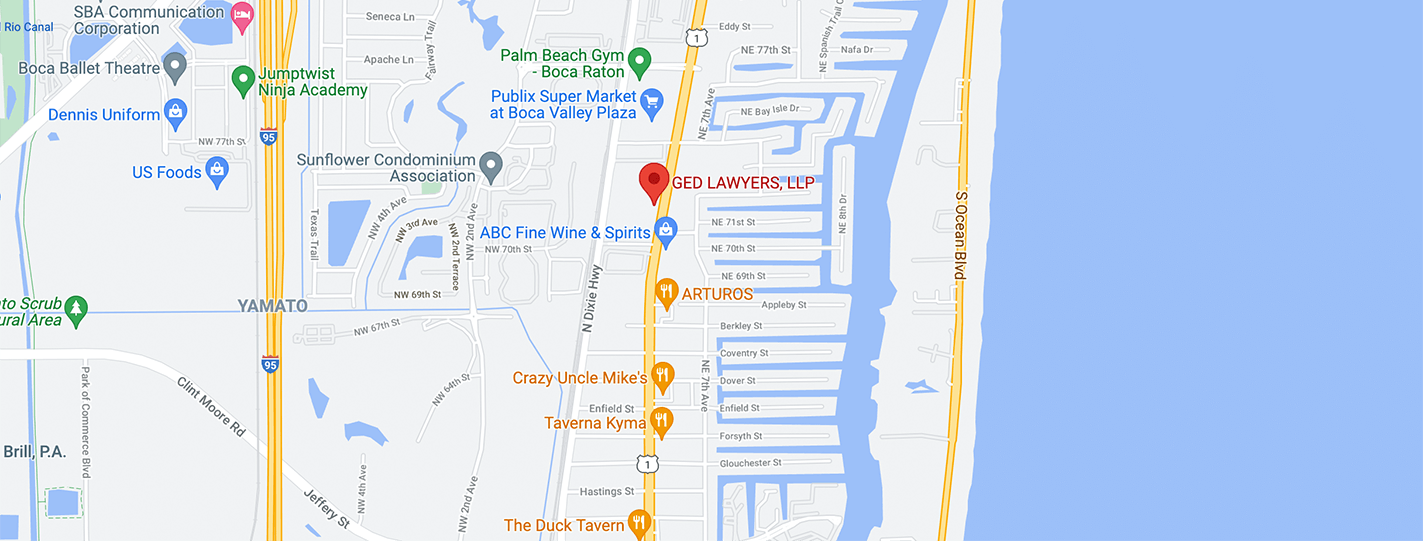
After a motorcycle crash, medical bills can add up quickly. From hospital stays to ongoing care, the costs can be hard to manage. Many riders ask: Does motorcycle insurance cover medical bills? The short answer is that it depends on your motorcycle insurance policy and the type of coverage you have.
Understanding what your motorcycle insurance coverage does and doesn’t include can make a big difference in your recovery. If your plan includes only liability coverage, it may not help with your medical costs. That’s why it’s important to look for answers from a reputable source, such as a motorcycle accident lawyer in Boca Raton.
What Motorcycle Insurance Usually Does and Doesn’t Cover
Unfortunately, motorcycle accidents are common, and even when there are ways to avoid motorcycle crashes, many victims end up suffering severe consequences after such an incident. Motorcycle insurance can help with different types of losses after an accident, but coverage depends on the specific policy.
Every rider’s needs are different, and coverage choices depend on budget, risk level, and the bike itself. Motorcycle insurance policies often have limits, exclusions, and out-of-pocket expenses. Knowing what is not covered is just as important as knowing what is.
What Motorcycle Insurance Does Cover
Most standard motorcycle insurance policies include some or all of the following:
- Liability insurance: Covers property damage and bodily injury to others caused by the rider.
- Collision coverage: Pays for repairs to your bike after a covered accident, even if you were at fault.
- Comprehensive coverage: Covers theft, fire, or weather-related damage not caused by a crash.
- Uninsured/underinsured motorist coverage: Helps if you are hit by a driver with little or no insurance.
- Medical payments coverage: May cover medical costs from a motorcycle accident, such as hospital stays and ambulance bills.
- Accessory coverage: This can protect add-ons like saddlebags, custom seats, or other equipment.
Some riders also choose extra options like roadside assistance or protection for camping gear, depending on their riding habits and budget.
What Motorcycle Insurance Does Not Cover
Motorcycle insurance does not always cover everything. Gaps in coverage can lead to large medical bills or repair costs. Riders should carefully check their policy to understand what may be excluded.
- Medical bills and expenses: These expenses may not be covered unless the policy includes Medical Payments Coverage or Personal Injury Protection.
- Non–medical expenses: Funeral costs, transportation costs, and home care services are not always included.
- Personal belongings: Articles such as phones, wallets, or backpacks may not be covered unless accessory or equipment coverage is added.
- Damage to another vehicle: You may be liable for the damage to other vehicles.
- Out–of–pocket expenses: Deductibles, uncovered treatments, or denied claims may still fall on the rider.
Also, not all motorcycle insurance companies offer the same types of motorcycle insurance or optional coverages. A motorcycle accident lawyer can do many things for your case, such as helping riders with their insurance policy and answering their questions about protection.
Being in a motorcycle crash can be overwhelming. Insurance coverage may ease some of the financial pressure, but only if it includes the right types of protection.
we are here for our clients and their legal needs, with proficiency in a broad range of fields. GET A FREE CONSULTATION
Things Riders Need to Know About Motorcycle Insurance
Understanding your motorcycle insurance policies and knowing what to do after a motorcycle accident can help protect motorcycle riders after a crash.
Many people assume their coverage handles all accident-related costs, but this often depends on the type of motorcycle insurance policy they have. Coverage limits, optional coverages, and insurance carrier rules may affect benefits.
Key Facts About Motorcycle Insurance
Policies can help with medical expenses, damage to vehicles, or funeral costs, but not all types offer the same protection.
- Minimum coverage may not be enough: Most states require basic liability insurance, but this often does not cover a rider’s own medical bills or equipment damage.
- Medical payments and personal injury protection: These can help with hospital bills, ambulance rides, and care services after an accident.
- Optional motorcycle insurance coverages: Riders can add benefits like collision insurance, comprehensive coverage, and uninsured motorist coverage for added protection.
- Health insurance interaction: Health insurance policies may offer some coverage, but riders could still face out-of-pocket costs or have to meet a health insurance deductible.
- Different insurance companies offer different policies: Motorcycle insurance companies may provide different limits, exclusions, and benefits. Comparing plans and checking what each policy includes is important.
Some riders may rely on a health insurance plan or personal injury protection, while others may count on medical payments coverage or bodily injury liability coverage.
Motorcycle Insurance Common Misconceptions
Each motorcycle insurance policy is different. Riders should consider what is included, what is not, and how their financial situation may affect their recovery options after motorcycle accident injuries or property damage.
These are some of the most common misconceptions about motorcycle coinsurance policies:
- It covers all medical costs: Not every motorcycle insurance policy includes medical coverage. Some policies focus only on damage per accident or other parties’ injuries.
- Comprehensive insurance includes everything: Comprehensive coverage helps with non-collision incidents, like theft or weather damage, but it doesn’t usually cover personal injury.
- Auto insurance and motorcycle insurance are the same: Motorcycle insurance coverage is different from auto insurance policies and often needs extra options to offer the same protection.
- All riders are covered the same way: Policies can vary widely. Some include coverage for passengers or equipment; others do not.
- Health insurance is always a backup: Not all health insurance coverage applies after a motorcycle crash, and some health insurance companies may delay or limit payments.
According to the NHTSA Motorcycle Safety Guide, riders often face higher risks and more severe injuries than other drivers. Knowing the facts about motorcycle insurance and avoiding common misunderstandings can help with future financial recovery and care.
with compassionate advice and professional assistance. CALL US TODAY
Consult an Experienced Motorcycle Accident Lawyer Today
Insurance companies often have limits on what they will pay, even if you carry multiple types of motorcycle insurance coverage. Motorcycle insurance policies might not cover every accident-related expense, including medical payments, funeral expenses, or care services for severe injuries.
If you have suffered motorcycle accident injuries or lost a loved one in a fatal accident, your financial recovery may depend on many things, like policy limits and fault. Reaching out to a motorcycle accident attorney at GED Lawyers can help you better understand coverage for damages and the next steps in your situation.
Schedule a free consultation today.
